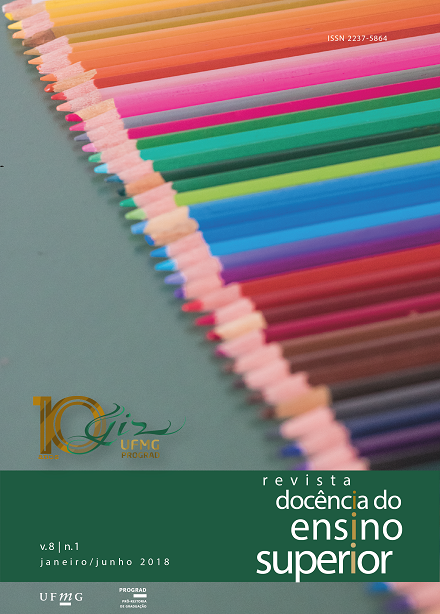Inclusive education of deaf students at the Federal University of Sergipe
DOI:
https://doi.org/10.35699/2237-5864.2018.2390Keywords:
Inclusive education, Higher education, Inclusion, DeafnessAbstract
With the increase of deaf students in higher education, this theoretical article proposes reflection about the performance of the teaching staff in the University, bringing a brief overview of the Federal University of Sergipe (UFS). We understand that the education for deaf students must be in line with the Brazilian Law No. 10.436/2002 and Decree No. 5.626/2005, recognizing Brazilian Sign Language (Libras) as the first language of the deaf. However, we have identified that the education that has been offered in the form of inclusion, specifically in the UFS, has not fully addressed the peculiarities of the teaching-learning of the deaf, since teachers are unaware of the specifics of deafness. methodologies are aimed at the non-deaf majority, and initial and continuing teacher education is still fragile. Therefore, we need to overcome these learning and participation barriers for the deaf in higher education, thus contributing to full inclusion.
Downloads
Downloads
Published
Issue
Section
License
Authors who publish in this journal retain the copyright and grant the journal the right of first publication, with the work simultaneously licensed under the Creative Commons Attribution License which allows the sharing of work with acknowledgment of authorship and initial publication in this journal.
Authors are authorized to take additional contracts separately, for non-exclusive distribution of the version of the work published in this journal (e.g. publish in institutional repository or as a book chapter), with acknowledgment of authorship and initial publication in this journal.
Open access policy:
Revista Docência do Ensino Superior is an Open Access journal, which means that all content is available free of charge, at no cost to the user or their institution. Users may read, download, copy, distribute, print, search, or link to the full texts of the articles, or use them for any other legal purpose, without seeking prior permission from the publisher or author, provided they respect the license to use the Creative Commons used by the journal. This definition of open access is in line with the Budapest Open Access Initiative (BOAI).



























